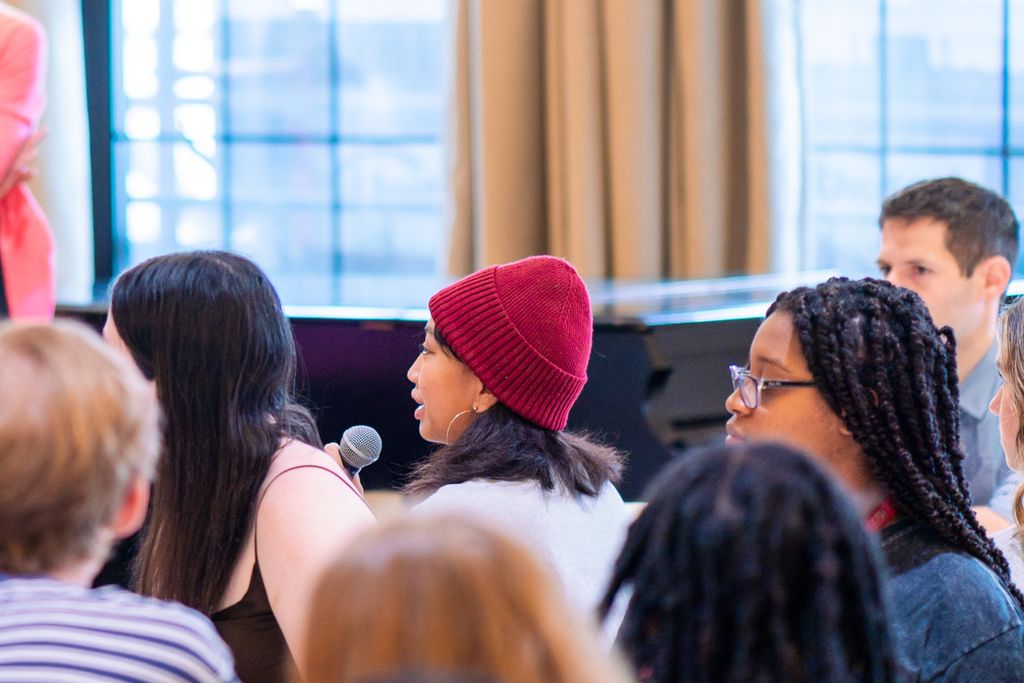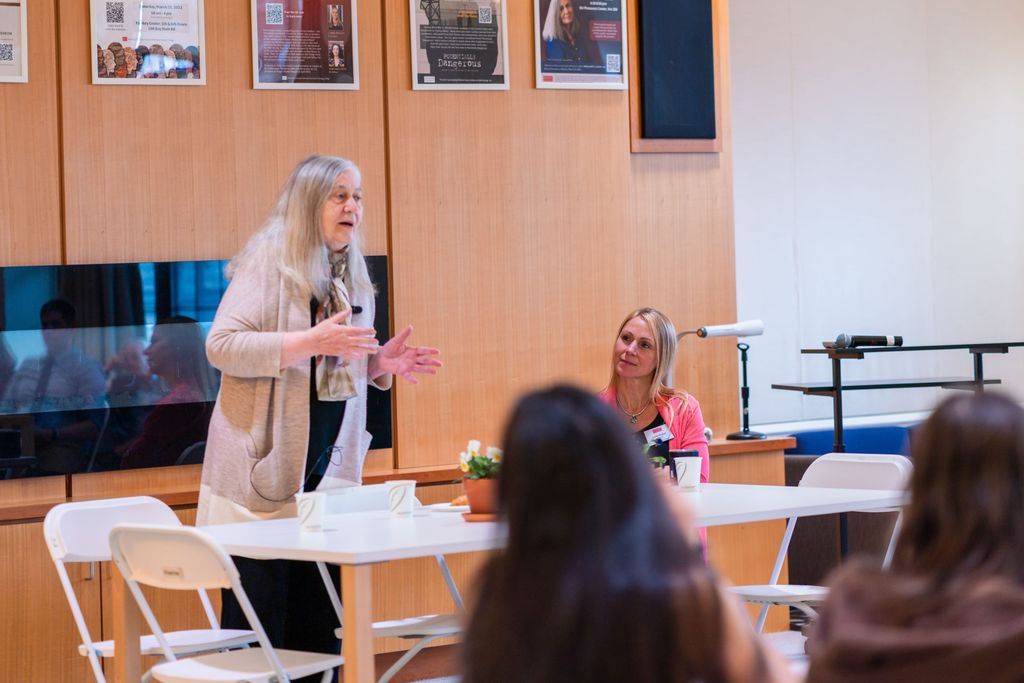Co-Curricular: Student Coffee & Discussion with Marilynne Robinson
Write-up by Eitan Marshall-Pinko, BA History 2024

Marilynne Robinson is charming: colloquial and profound, witty and serious. I heard her speak at the student brunch the morning after her April 11th Conversations in the Arts & Ideas conversation with Dean Robert Hill. I had just finished reading Gilead with the History Department’s book club, led by Professor Jim Johnson. Seeing her speak, I was reminded of the existentially warm curiosity of John Ames, Gilead’s pastor narrator. It made me feel as though I was in her kitchen, like the one in Ames’ bright Iowa home, sipping tea and catching up with a friend.
I had expected her warmth to be undercut during her discussions of God or Christianity or the state of politics in America, but there wasn’t a shred of combativeness to her, just a refreshing air of calm confidence. Indeed, it seemed at both events that everyone was refreshed by her presence. At the brunch, the room was packed with students, and the mood was eager. We were not just ready to listen, but happy to listen.
With that kind of audience, it was easy to absorb Ms. Robinson’s thoughts on a variety of topics; naturally, her reflections on the craft she devotes her life to were particularly inspiring. For me, both inside and outside of the classroom, the act of writing feels constricting, as though it is never mine and is always for someone else. Often I’m doing exactly the opposite of what Ms. Robinson does when she writes fiction. As she stated in her evening appearance, “I never think about writing unless I’m actually doing it.” For my part, I can’t stop thinking about class writing assignments, but just hearing her talk of the “pleasant pressure” of writing fiction felt freeing.

There was one thing she said in particular about writing creatively that has stuck with me: when writing, “draw on what your own self can tell you.” That idea, that the self holds deposits of value to draw upon when writing, is truly beautiful. It deeply comforts me when my mind feels overwhelmed with the task of translating ideas and memories and feelings to words on a page.
There was only one moment where I parted company with Ms. Robinson’s ideas, and even this was generative. At the brunch discussion, she talked quite a bit about higher education: where it’s going, what it’s been, and why it’s important. She said she believed colleges to be a fundamentally “different” space and that in America, there is a “special sanctity” to education.
Ideally, I would agree. College classrooms should be a unique space that allows for free discussion; there should be a liberal exchange of ideas in seminars, where people feel free to say what they feel, regardless of whether or not they deliver the “right” answer. But, I don’t think that’s where the college classroom is heading, and I think Ms. Robinson is mistaken in thinking that these values are omnipresent in higher education today.
In the current climate, colleges aren’t just places of learning, they are businesses. The price tag associated with attending college in 2023 is quite literally ridiculous. In my grandparent’s day, private college might have cost a couple of thousand dollars a year, while my tuition this year was the price of a Mercedes. The financial burden of receiving a liberal education today stands perpetually as a sword hanging over the heads of college students.
Students feel that pressure and choose their paths of study accordingly. Pre-med, pre-law, economics, and STEM are the most popular majors today, not the humanities. There’s something deeply wrong with that. Beyond that, it is a definitive departure from the ideal of the sanctity of higher education. I’m not sure Ms. Robinson is right in thinking that higher education is in a golden age.
Nevertheless, her idealism is tremendously admirable. It’s difficult to extricate one’s cynicism from topics like these and to retain hope for the future of the soul of the humanities, but Ms. Robinson is an eloquent spokesperson for that very soul. Her conviction came across to the students with clarity and urgency.

Right now, the world of the humanities needs some of the faith that Ms. Robinson holds. It is hard for me not to be dismayed about the humanistic endeavor when the country seems bent on disregarding the pursuit of life’s biggest questions. But, in my short life thus far, I don’t believe I’ve encountered a handful of people half as hopeful as Marilynne Robinson. If we, as a university and as a country, could really listen to her, we would stand to become a better democracy and a better people for it.